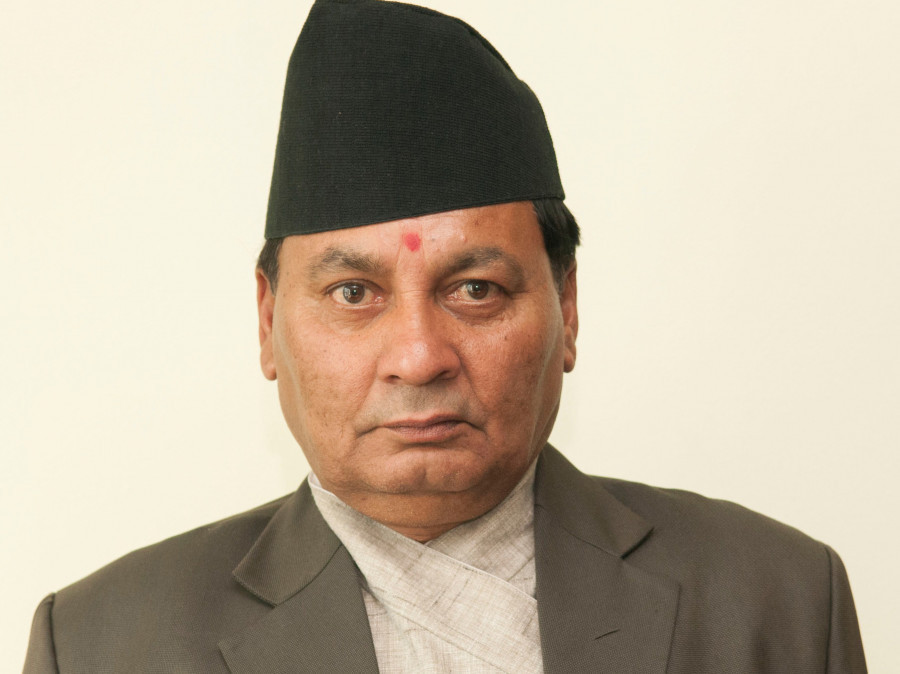National
CIAA ex-commissioner Raj Narayan Pathak gets over 3 years in jail for graft
Lambodar Neupane, former chair of Nepal Engineering College, gets three years jail. Both ordered to pay a Rs3.9 million fine each.
Post Report
The Special Court on Thursday convicted former commissioner at the Commission for Investigation of Abuse of Authority Raj Narayan Pathak of corruption.
The court sentenced Pathak to three years and three months in jail and slapped a fine of Rs3.9 million per the Corruption Prevention Act 2002 after finding them “guilty of attempted corruption,” according to Dipendra Nath Yogi, spokesperson for the Special Court.
“As Pathak was in a public position when he committed the crime, he will have to serve three more months in jail as per Section 24 of the Corruption Prevention Act 2002,” Yogi told the Post.
Section 24 of the law states, “In case the offences under this chapter have been committed by an office bearer of a constitutional organ… such person shall be liable to the punishment of imprisonment for a term of three years in addition to the punishment prescribed for such offence.”
When he was charged with the offence, Pathak was serving as a commissioner of the anti-graft body.
A division bench of judges led by Special Court chair Shree Kanta Poudel, and Yamuna Bhattarai and Balbhadra Baskota as members, also sentenced Lambodar Neupane, the then chairman of the Nepal Engineering College, to three years in jail and fined him Rs3.9 million.
On March 26, 2019, the anti-graft body filed a corruption case at the Special Court against its own commissioner Pathak after his resignation, accusing him of accepting Rs7.8 million in bribes in return for a promise to help settle a dispute related to the ownership of the Changu Narayan-based Nepal Engineering College.
Leaked audio and video recordings showed Pathak admitting to accepting the money from a group headed by Neupane.
“As the bribe money could not be recovered from the accused, they were sentenced for attempting to commit corruption instead of committing corruption,” said Yogi.
Both Pathak and Neupane, meanwhile, attract section 21 of the anti-corruption law, which states “whoever attempts to commit an offence punishable under this Act (Prevention of Corruption Act-2002) shall be liable to half the punishment to be imposed on the public servant or any other person committing such offences.”
As per the CIAA charge sheet, the group led by Neupane attempted to capture the college property by trying to register it as a private company. When the case reached the CIAA, Neupane and his group had allegedly bribed Pathak to settle the dispute in their favour.
After the videos were leaked, Pathak resigned as CIAA commissioner on February 15, 2019.
A complaint was registered at the CIAA against an attempt to capture the college property by the group led by Neupane, one of the college’s directors.
The CIAA itself investigated the case after Pathak’s resignation. The CIAA said Pathak had accepted the money from Neupane via Gyanendra Kumar Jha, who had worked as a middleman, to pay the bribe money to Pathak on behalf of Lambodar Neupane and the others.
The anti-graft body had also made Neupane a defendant in the case.
As per the charge sheet, the CIAA has sought a maximum prison term of 11 years for Pathak, confiscation of the bribe money and a fine of the sum equivalent to the bribe as per the Corruption Prevention Act.
In Neupane’s case, the CIAA has sought eight-year jail, confiscation of the bribe amount and a fine equivalent to the bribe amount.
Although the CIAA interrogated several individuals involved in the case, it decided to file cases only against the two.




 13.12°C Kathmandu
13.12°C Kathmandu













